Fruit Growers Fear Huge Damage After Morning Frosts
ZAGREB, 15 April, 2021 - The real extent of damage to orchards due to the unusually cold weather in April with snow and early morning frosts, will only be known in the next few weeks, Croatian Fruit Growers' Association president Branimir Markota told Hina on Thursday.
"We have been in contract with the agriculture ministry during the entire time of low temperatures last week and again last night, and have discussed the possible consequences these unfavourable conditions will have for fruit growers. The real extent of the damage will only be visible in a few weeks and once we know it and depending on the possibilities, we will certainly seek assistance," Markota told Hina.
A huge problem exists because insurance policies do no cover damage caused by frost that occurred prior to 10 April, he said.
That's something that will be discussed with insurance companies and the ministry which covers 70% of the cost of insurance premiums from Measure 17 of the Rural Development Programme, Markota explained.
Fruit growers usually insure their crops via Measure 17 - Risk management and Sub-measure 17.1 - Insurance of crops, animals and plants.
For more about agriculture in Croatia, follow TCN's dedicated page.
Agriculture Minister Marija Vučković Delivers Three Rural Development Programme Contracts
ZAGREB, 9 April, 2021 - Agriculture Minister Marija Vučković on Friday presented three contracts from the Rural Development Programme worth HRK 8.5 million to beneficiaries in Jarmina municipality in eastern Croatia.
She also attended the opening of "Jarmina", the first kindergarten in the municipality in which HRK 7 million was invested from EU funds and her ministry's Rural Development Programme. It will be attended by 75 children.
Vučković told the press this was the 12th kindergarten in Vukovar-Srijem County built with funds from the Rural Development Programme, for which HRK 56 million was ensured, adding that 200 kindergartens would be opened in Croatia thanks to over HRK 1 billion from the programme.
The 12 kindergartens have been opened in communities with a population of below 5,000.
Vučković said kindergartens were important for keeping young families in villages, adding that her ministry would soon advertise calls for the construction of more kindergartens, farmers' markets, firehouses and community culture centres.
Last year the Croatian EU presidency secured the support of the member states for a transitional regulation to enable continuity of financing until "the whole common agricultural policy reform is adopted," the minister said, adding that the reconstruction and construction of the social infrastructure in rural areas would continue.
Over €5 billion for Croatian agriculture
Vučković announced that Croatia would receive over €5 billion for agriculture in the EU's 2021-27 budget.
She said 12.9% of Croatian farmers and over 20% in Vukovar-Srijem County were under 41.
(€1 = HRK 7.5)
For more about politics in Croatia, follow TCN's dedicated page.
STARS Project Gives Guidelines For €5 Billion Made Available to Agriculture Sector
ZAGREB, 8 April, 2021 - Documents resulting from the Strategic Transformation in Agriculture and Rural Space (STARS) project will help determine how around five billion euros that have been made available for Croatia's agricultural sector will be spent, Agriculture Minister Marija Vučković said on Thursday.
The Agriculture Ministry and the World Bank cooperated on the STARS project, and the agreement on project cooperation was signed in October 2018.
Analyses, studies and guidelines made during the project have thus been significantly used also in making a draft agricultural strategy for the period until 2030, which has been put to public consultation, and in making a national aquaculture development plan for the period 2021-2027. Both documents are aimed at enhancing the sectors' competitiveness and adapting them to current conditions.
Numerous domestic and foreign experts, sector stakeholders, employees of the Agriculture Ministry and other Croatian institutions and universities cooperated on the project, with Vučković noting that the start of work on the project had coincided with debates about the future of the EU's Common Agricultural Policy, which will affect financing priorities and development of agriculture in all member states.
The project served to reexamine the situation and needs of the Croatian farm sector, as well as the measures that are being implemented, and its documents will be used in deciding how the roughly five billion euros intended for Croatian agriculture will be used, Vučković said.
Great chances for development of Croatian farm sector
Project coordinator Svetlana Edmeades of the World Bank said that the World Bank strongly believed that Croatia had great chances for the development of its farm sector.
Farm producers have central place in the project, which identifies as national strategic goals an increase in productivity and in the resilience of farm production to climate change, stronger competitiveness of the agricultural and food sector, revival of rural economy and improving living conditions in rural areas.
Edmeades underlined the importance of knowledge and innovations, noting that the development of Croatia's agriculture should be green, resilient and inclusive, which includes, among other things, production of organic food, sector resilience to shocks, as well as greater involvement of smaller producers in existing value chains.
She said the project achievements were a number of reports that should serve as guidelines for the ministry and farm producers towards a green, resilient and inclusive agriculture.
The World Bank official said that the analyses were expected to significantly contribute to the government's programme with regard to specific targets in the farm sector, in the making of a national agricultural and rural development strategy, participation of agriculture in the national recovery and resilience plan, and national strategic planning within CAP.
Value of agricultural production to be raised to HRK 30bn by 2030
State secretaries Tugomir Majdak, Zdravko Tušek and Šime Mršić presented the draft agricultural strategy for the period until 2030 and the national plan for the development of aquaculture in the period 2021-2027.
The officials said that the projected effects of the strategy until 2030 were an increase in labour productivity of 60% and the consequent increase in the value of farm production to HRK 30 billion, for which funds in the amount of €7.5 billion were envisaged.
This should be achieved, among other things, by a 35% increase in the number of locally bred fattening pigs, a 20% increase in cattle breeding, expanding areas under permanent crops by 5,000 hectares and areas where crops are grown under glass by 500 hectares, a 20% increase in the share of the food industry in GDP and a 30% increase in the number of producers in short supply chains.
The national plan for the development of aquaculture in the period 2021-2027, which is being made, will put emphasis on stronger competitiveness and the creation of 15% more jobs in the rural and coastal economies in the aquaculture value chain, including an increase in total production volume of 30%, a 35% increase in added value in the processing of aquaculture products, and an increase in the average annual consumption of aquaculture products per capita by as much as 50%, the Agriculture Ministry said.
For more about politics in Croatia, follow TCN's dedicated page.
Poreč Strengthens Agriculture with Exciting New Projects
March 24, 2021 - Poreč strengthens agriculture with exciting new projects implemented by the City.
Last Friday the city of Poreč signed contracts for assigning funds to the agricultural civil societies to help their projects and programs. The continuation of the tradition established in the last two years, Poreč city gave 150.000 kuna to associations Bio Istra and Agro Poreč through a public contest, both for their day-to-day work in agriculture and for the project "Eko! impjantamo ružmarin" (Eco! let's plant rosemary) which includes going to schools and giving pupils unprocessed rosemary to plant in the school. The project is at full speed and even the coronavirus pandemic didn't stop them, as the first phase of the project was done via Zoom. In the early stages of the project, the goal is to establish cooperation between the only two high schools in Poreč: Mate Balot High School and Anton Štifanić Tourist School.
"We started with the first workshop in preparing rosemary seedlings with the agrotechnical pupils at Mate Balot and we will use it to decorate the garden of Anton Štifanić Tourist School," said Vlasta Radoičić, president of Bio Istra. Her association exists for the past 23 years and is working on the county level, determined to activate as many people as possible to boost family agricultural businesses.
"Poreč was the cornerstone of eco-agriculture and it needs to remain that today and become a modern teacher of the area", concluded Radojčić.
Poreč is one of the strongholds of Croatian tourism in Istria, but it's also a truly agricultural city. Loris Peršurić, mayor of Poreč not only knows it but strongly supports it.
"We have a 145-year-old institute for agriculture and tourism as well as a 138-year-old agriculture school, the only one in Istria, which means a lot for our city", said Peršurić. He adds that is precisely why he tries to support and help projects related to agriculture which includes co-financing the Centre for invasive species in common projects and as mayor, hopes to valorize a wine cellar that dates from the Austro-Hungarian Monarchy rule and is known today as enoteca (wine library) in the community. "Poreč is the headquarters of famous winemakers and olive oil makers and our agricultural story continues to grow and develop", concludes Peršić.
The city also finances the project "Apply for Agriculture School - Produce Food and Take Care of the Environment" which resulted in a 50% increase in pupils educating in the school and there are opportunities for pupils to continue education in the field in Poreč too.
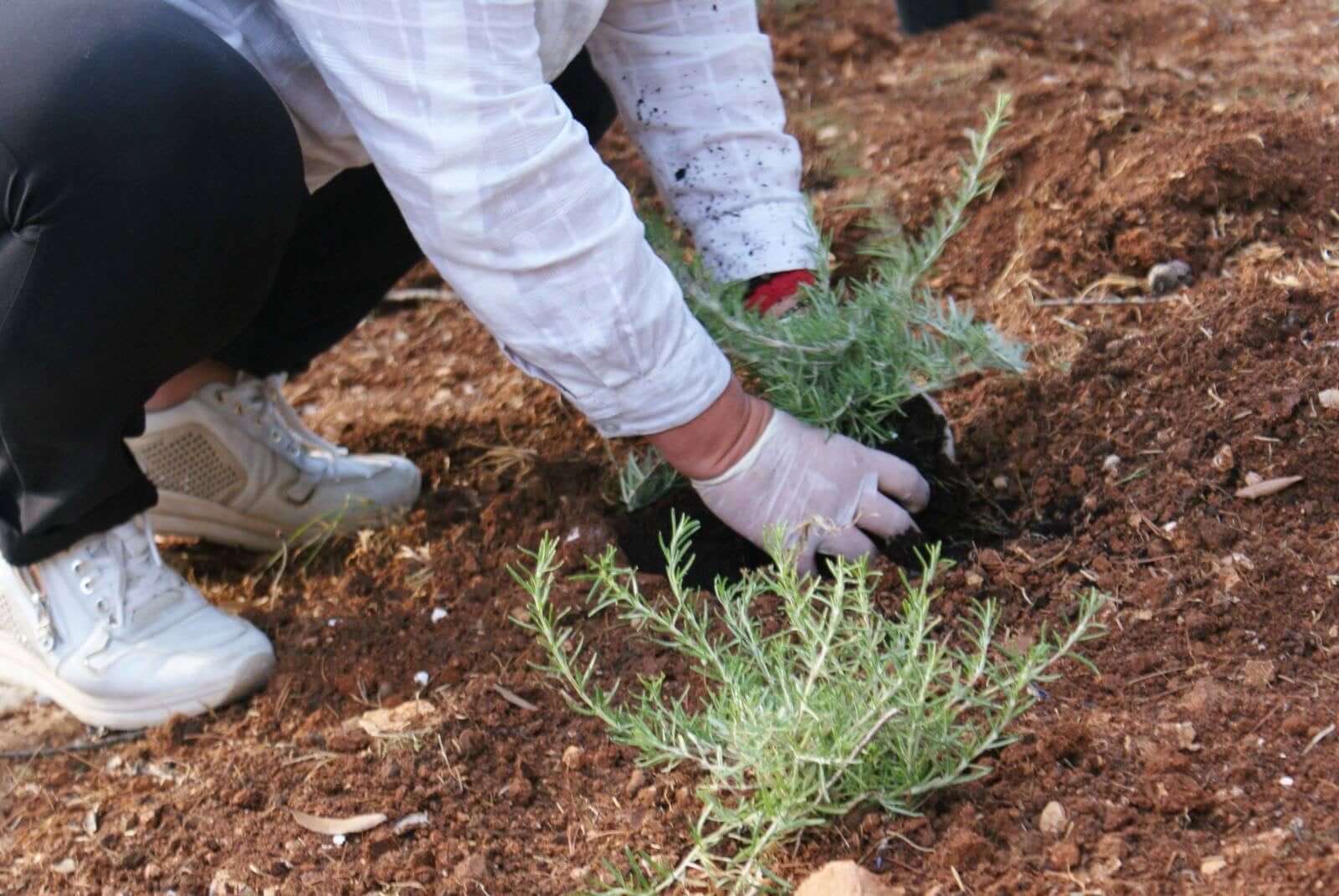
seedling planting © Udruga Bio Istra
Local olive treasure
Poreč is also proud of its local olive species Porečka Rosulja, which was first described by a famous local scientist Carlo Hugues 120 years ago. The olive wasn't researched much after that, but today, scientists from the Agriculture and Tourism Institute are out on the field to pursue the described treasure of the Poreč olive scene. Agro Poreč association secretary Zdenko Barac whose organization is dedicated to promoting local agriculture and seedlings distribution is included in this research. He is thankful that the city recognized the importance of Porečka Rosulja and its investment in the "mother field" in Poreč where new seedlings will be prepared for further distribution and for another olive plantation in St. Martin Bay, which will have both educational purposes and will be a nice architectural touch to the landscape of the area. No to mention, a nice dedication to Hugues which first described the species.
"The number of seedlings is growing. This is the third year of the project where we have 530 seedlings and we started with 170 in 2019", says Barac. The plan is to prepare the best seeding material and apply them to the Croatian Center for Agriculture, Food, and Rural Affairs.
"There are very few cases in the world where a species is named after city so we can boast about that", concluded Barac.
For more about agriculture in Croatia follow TCN's dedicated page.
Petir: Agricultural Strategy Should Cover Status of Women in Rural Areas
ZAGREB, 8 March, 2021 - The chair of the Croatian Parliament Committee on Agriculture, Marijana Petir, has sent an initiative to the Minister of Agriculture to include activities aimed at improving the status of women in rural areas in the Agricultural Strategy and introduce a special sub-programme for women in rural areas.
Given that the Agricultural Strategy 2020-2030 is in the final stage of preparation, it is important for women in rural areas to be included in it in a separate section. That, in turn, would require preparation of an action plan that would deal with the status of women in rural areas, Petir said on the occasion of International Women's Day.
The plan would, among other things, address such important issues as the "invisible work" of farm women, access to land ownership, achieving economic independence, preventing the risk of poverty and unemployment, and increasing the representation of women in decision-making bodies.
Petir said that the national strategic plan, which is being developed, should include a special sub-programme for women in rural areas as provided for by the EU's common agricultural policy. Such a sub-programme could improve the status of women in rural areas, create jobs for them, help them in investing in physical assets, contribute to the development of farms and their operations, and ensure conditions for basic services and revitalisation of rural areas, she said.
"I hope that these activities will help improve the status of women in the rural areas of Croatia and that their irreplaceable role in sustaining the rural areas will start to be fairly evaluated," Petir said.
Opposition Says Agricultural Production in Ruin
ZAGREB, 4 March, 2021 - During Thursday's debate on amendments to the Agriculture Act, the parliamentary opposition said Croatia's agriculture was collapsing due to poor policies, while Minister Marija Vučković dismissed such claims and said that agricultural production was growing.
Željko Lenart (HSS-HSU) said 33,000 hectares of valuable farmland from the former Agrokor conglomerate was now owned by the foreign Fortenova and that pig farming and milk production were collapsing.
He said the Farmland Act was not being honoured, that a stay on the sale of farmland to foreigners would soon end, and that the smallest farmers were being destroyed because only 6.5% of the biggest producers received the bulk of the aid.
Mišel Jakšić (Social Democrats) said the state of agriculture showed that the policies to date had not produced results because import was high and there was no self-sufficiency despite the potential.
Marija Selak Raspudić (Bridge) said 88 million tonnes a year was thrown away due to expiration dates and pushed for donating food to the needy and establishing a food bank.
Vučković said cereal production and cattle-framing were up and that food donations had gone up 13%, adding that it was necessary to reduce food waste.
Marijana Petir (ruling HDZ) pushed for regulating the aid system to facilitate the development of small and medium farmers. She announced a call for applications for HRK 120 million to help farmers in earthquake-hit areas.
HRK 121 Million Earmarked For Vulnerable Sectors In Agriculture
ZAGREB, 4 March, 2021 - During a cabinet meeting on Thursday, the government adopted a state aid scheme for this year for exceptionally vulnerable sectors in agriculture, ensuring HRK 121 million for that purpose.
Agriculture Minister Marija Vučković said that HRK 51 million was earmarked for dairy cows, HRK 18.5 million for reproductive sows, HRK 42 million for tobacco production, HRK 8.5 million for the olive oil sector and HRK 1 million for domesticated and native agricultural plants.
The total amount of HRK 121 million will come from the ministry's state budget allocation and from projections for 2022 and 2023, Vučković said.
The programme is aimed at improving these vulnerable sectors.
Legislative framework by year's end for euro coins with national side
The government tasked the Finance Ministry with preparing, by the end of the year in cooperation with the Croatian National Bank (HNB), a bill and other necessary acts designating the Ministry as the competent authority for issuing euro coins. These laws will also lay down the procedure for issuing, manufacturing, security, storage, management, supply, replacement, withdrawal and destruction of euro coins.
Currently, HNB has the exclusive right to issue kuna coins, and after adopting the euro currency, Croatia will follow the example of the majority of euro area countries where coins are issued by the relevant ministry.
Finance Minister Zdravko Marić recalled that last year the government had adopted the National Plan to replace the Croatian kuna with the euro and the issuance of coins is one of the significant activities in that process.
The government also endorsed the activities of the Croatian Mint in designing euro coins with the national side, Marić said.
The coins will have to be approved by the European Commission after meeting all the criteria. Marić added that the ministry will also have to arrange possible models of the business relationship with the Croatian Mint before the end of the year.
More Than 1,000 Tonnes of Fodder For Earthquake Areas
ZAGREB, 3 March, 2021 - The Ministry of Agriculture said on Wednesday that it had received more than a thousand tonnes of fodder for earthquake-hit areas and that more than 868 tonnes had been distributed to farmers, adding that it was in the process of procuring an additional 621 tonnes valued at HRK 1.5 million.
The ministry said in a press release that as of 1 March 1,012 tonnes of fodder had been received in warehouses in Petrinja and Glina and that more than 868 tonnes had been distributed through 3,627 individual donations.
The fodder was received through donations from 69 donors from all over Croatia.
The ministry advised that it is launching procedures for the procurement of an additional 621 tonnes of fodder valued a HRK 1.5 million which will ensure enough fodder for cattle in earthquake affected areas for one month's time.
Agriculture Minister Marija Vučković said that the ministry was endeavouring to secure all the necessary preconditions so that production doesn't stop in Banovina. In addition to providing fodder for animals, the ministry mediated in the temporary transfer of 306 head of cattle as well as selling 234 head at fair market prices.
She recalled that all animals in the area are eligible for free vaccination and veterinary treatment until 31 March. The expected cost of that measure amounts to HRK 10.5 million and it will be financed from the state budget.
Croatian Agriculture Has Shown Resilience, Says Minister
ZAGREB, 19 February, 2021 - Agriculture Minister Marija Vučković was visiting Vukovar-Srijem County on Friday, where she presented contracts on the co-financing of projects from the Rural Development Programme and said that Croatian agriculture has shown resilience.
Citing Croatian Bureau of Statistics estimates, she said in Vukovar that agricultural production grew by 7% or HRK 1.4 billion in 2020, the highest increase since 2008, while gross added value and factor and entrepreneurial incomes increased between 14 and 16%.
Those figures show that Croatian agriculture is not on a bad path, that domestic producers are resilient and creative, and that the Rural Development Programme is showing results, the minister said.
"We have to insist on economic programmes for farmland, on connecting everyone in the food production chain and on boosting the processing industry, which will then best stimulate primary agricultural production," Vučković said.
Without increasing productivity and competitiveness, Slavonia cannot become stronger, she said.
Speaking of a farmland bill, the minister said the government wished to debate it with everyone concerned. As our most valuable resource, farmland is worth much more than all the incentives we will receive from the EU, she added.
Responding to questions from the press, Vučković said the government and her ministry had done their best to boost the sugar industry in Croatia.
Young Croat Josip Popcevic Pioneers Preservation of Super-Pollinating Bees
January 25, 2021 – Croat Josip Popcevic has already decided to dedicate his young life to little-known solitary bees. The reason? They are super-pollinators - our very future could depend on them
Croatia is not unknowledgeable when it comes to bees. Beekeeping is a traditional part of rural life in Croatia. Indeed, Slavonian honey is protected at an EU-level and the honey of Istrian is in the process of requesting the same.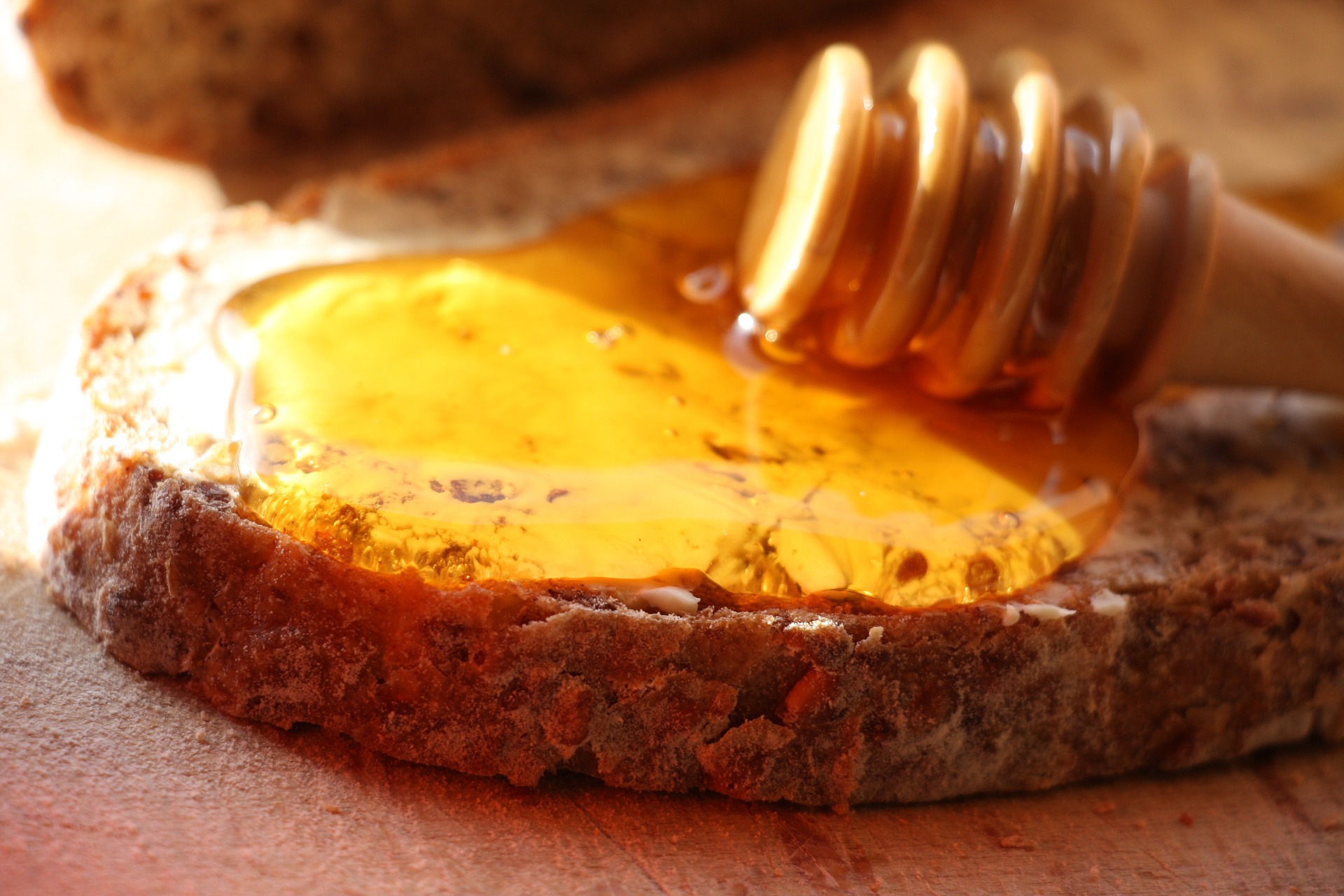 Croatian honey is renowned throughout the region. Slavonian honey is protected at an EU level
Croatian honey is renowned throughout the region. Slavonian honey is protected at an EU level
Vast tracts of land in Croatia are dedicated to successful agriculture. Here, too, the worth of bees is well known. Bees are known to pollinate upwards of 80% of all the crops we eat (pollination is how male and female plants reproduce and make seeds).
Garlic, parsley, apples, cherries, apricots, lemons, asparagus, pumpkin, cucumber, broccoli, courgette (zucchini), cabbage, carrots, cauliflower, aubergine (eggplant), watermelon, celery, kale, peppers and all berries are cultivated widely across Croatia, providing incomes, employment and food. The pollination of all of them relies on bees.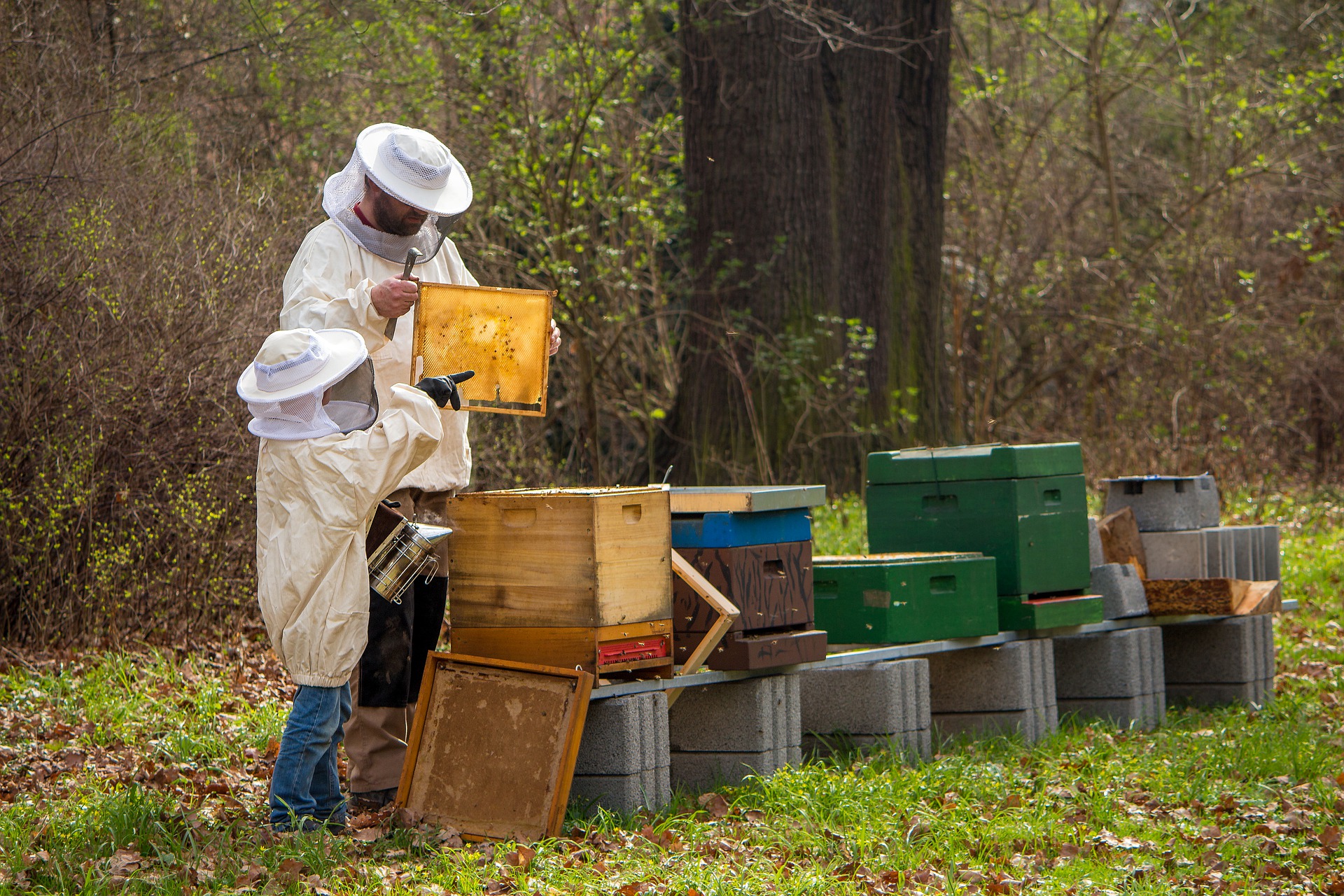 The honey made from beekeeping in Istria is currently applying to the EU for the same protected designation awarded to that from Slavonia
The honey made from beekeeping in Istria is currently applying to the EU for the same protected designation awarded to that from Slavonia
However, for all of the awareness of bees' importance in Croatia, much of is restricted to the familiar scenes of traditional beekeeping. We are only too aware of the diseases and pollutants that can damage these precious colonies that produce our honey and pollinate our plants.
But, the truth of the integral roles bees play in our livelihoods and food is actually very different from what we imagine. It is a truth far removed from the colonies and hives of mask-wearing, honey-collecting beekeepers. Because up to 90% of all bees do not live in colonies at all. Those who don't aren't social, community creatures at all. They live a solitary existence. They are solitary bees. And, these solitary bees are far more important to the pollination of our plants than the colonies that live in hives. Just one single Red Mason bee (one of the many types of solitary bee that lives in Croatia) is equivalent to 120 worker honeybees in the pollination it provides.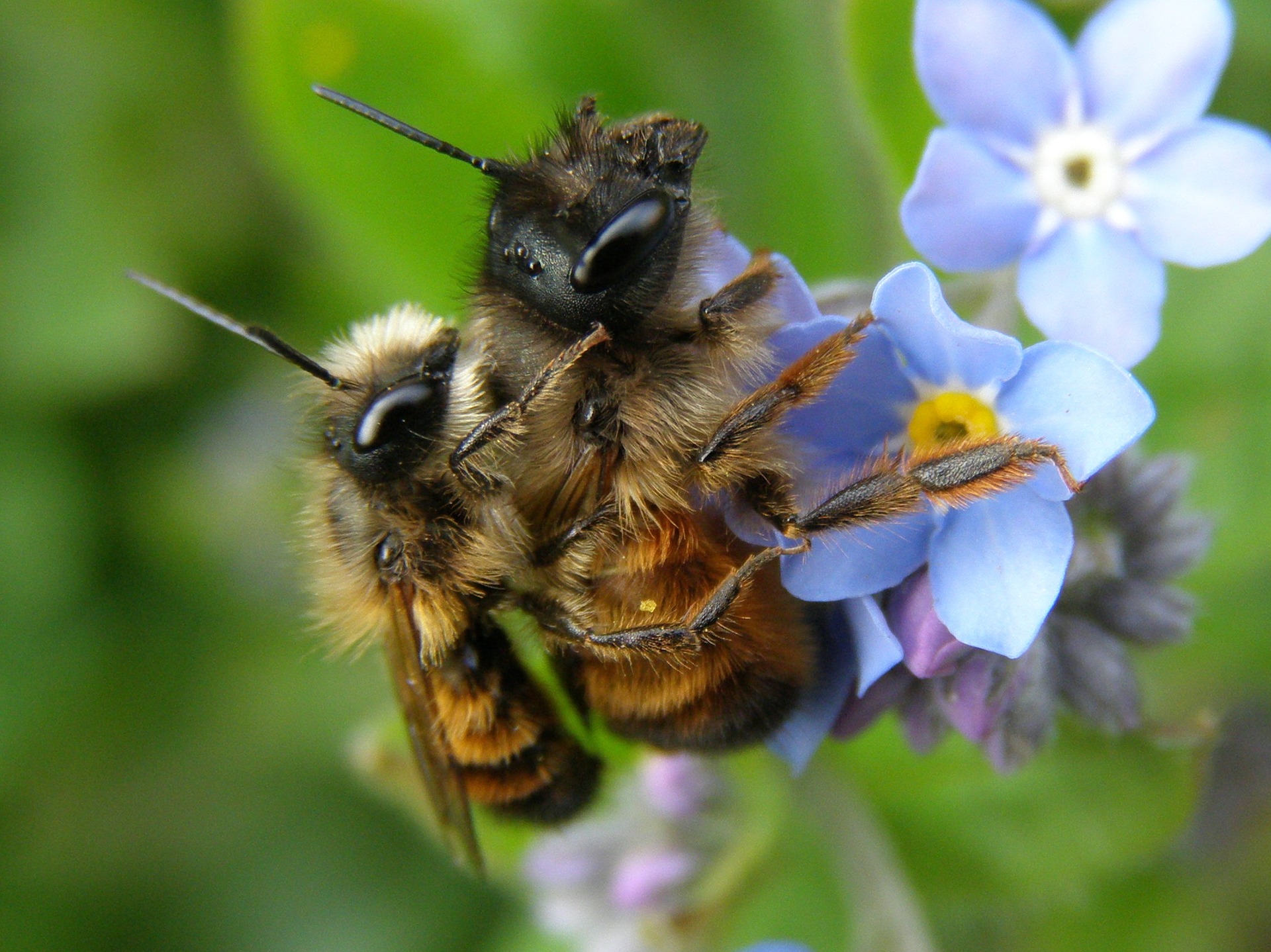 Solitary bees are the best pollinators of all bees
Solitary bees are the best pollinators of all bees
One person who is not unaware of the importance of solitary bees to our existence is 27-year-old Croat Josip Popcevic from Zbjegovača, a small village near Kutina. Since graduating in Production Engineering at the Faculty of Mechanical Engineering and Naval Architecture, Josip Popcevic has turned his mind back to the rural landscape from which he comes and has dedicated himself to the preservation, protection and furtherance of the solitary bee population so integral to our existence.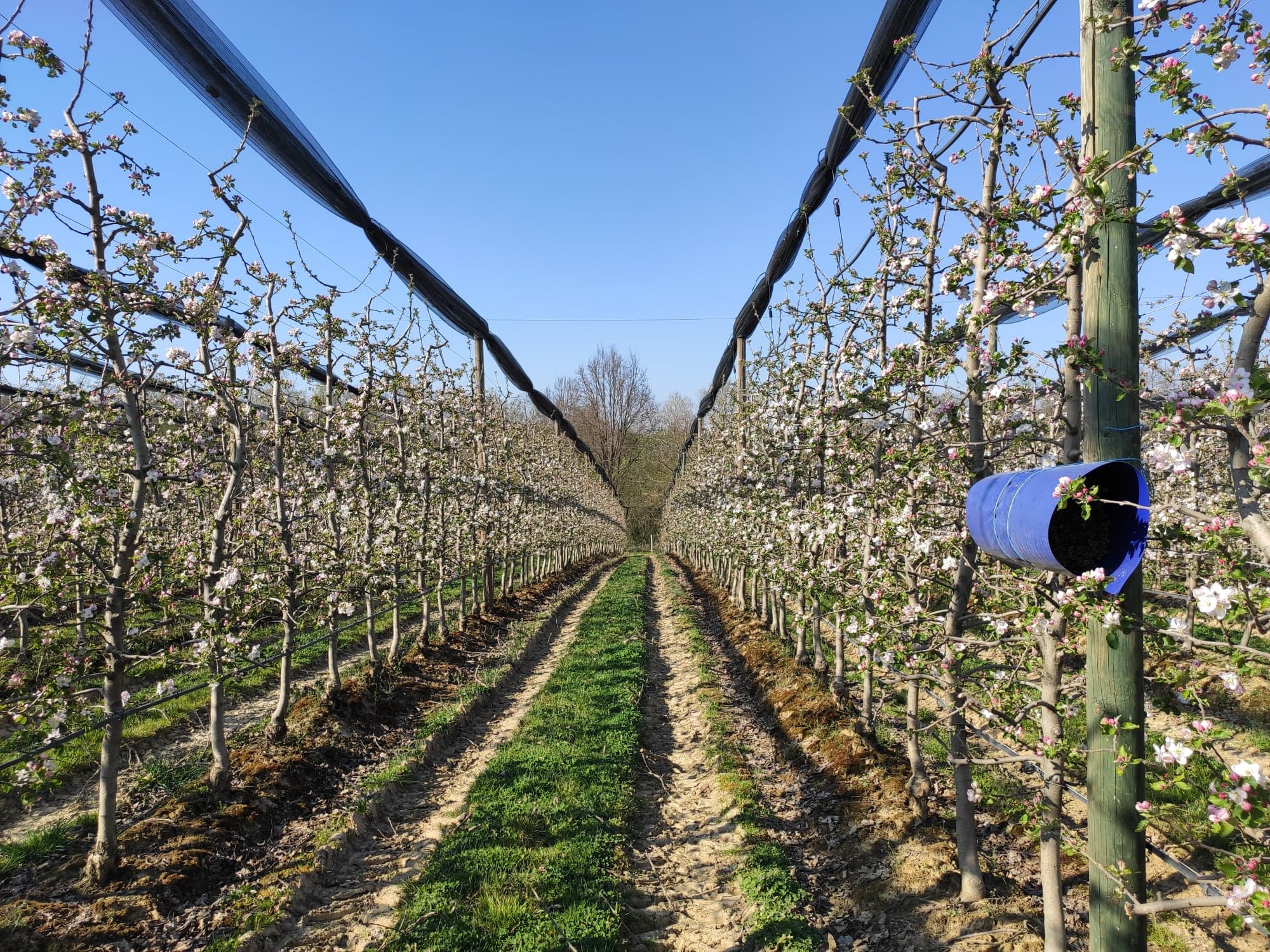 Housing for solitary bees made by Josip Popcevic © Cornuta / Josip Popcevic
Housing for solitary bees made by Josip Popcevic © Cornuta / Josip Popcevic
One of Josip Popcevic's great ideas for securing the future of these important solitary bees could perhaps only come from an engineer – he has decided to build houses for them. This is no easy task. Unlike honey bees, who can live comfortably alongside thousands of others within a colony, solitary bees – as their name suggests – live completely alone. Except when mating, they do not depend on other bees at all. They most often nest in the ground, in wood and other natural materials. They are more active at lower temperatures, do not fly far from where they live, they are less aggressive than colony bees and they do not sting.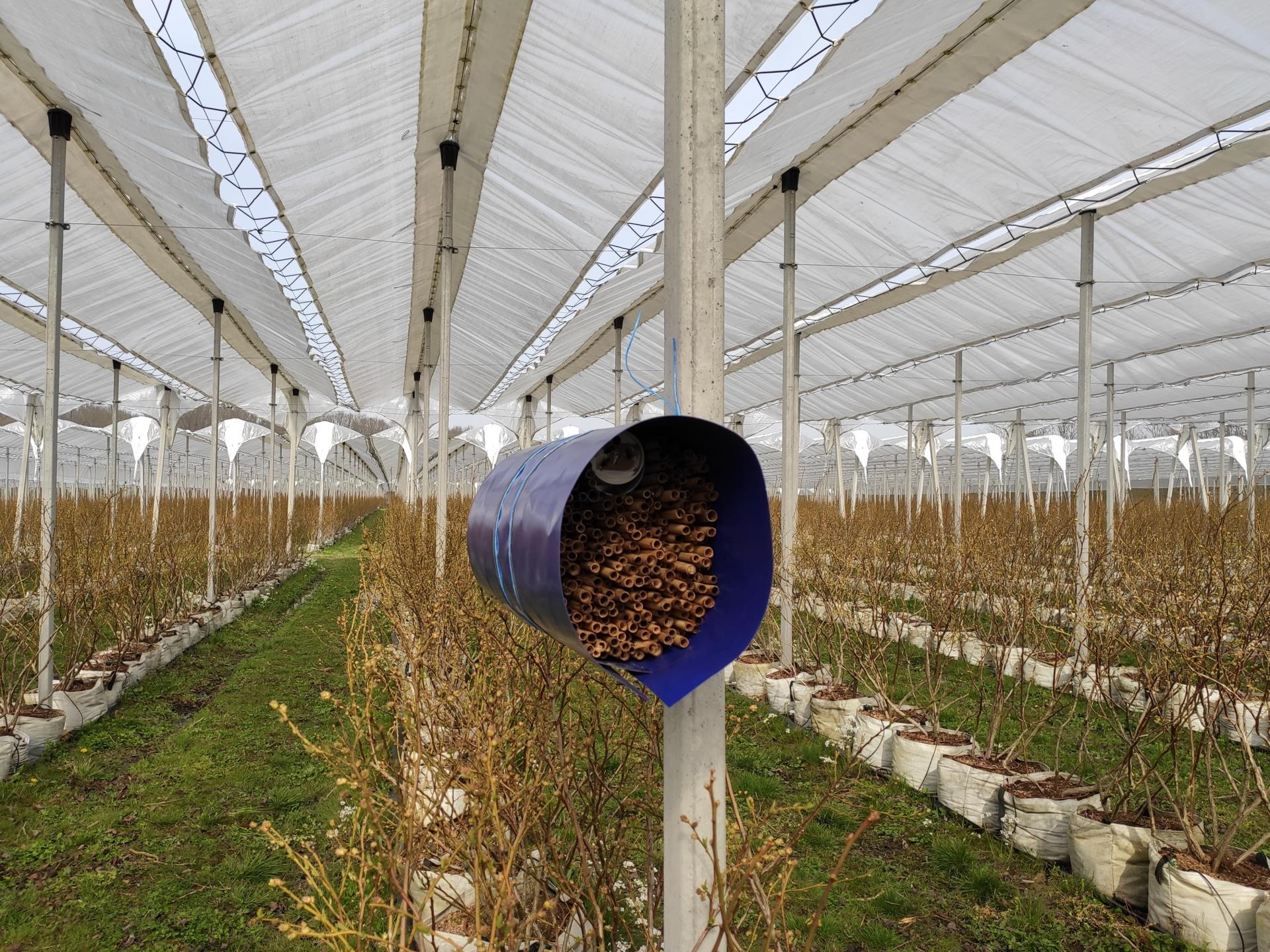 One of Josip's houses for solitary bees, at work within a Croatian agricultural endeavour © Cornuta
One of Josip's houses for solitary bees, at work within a Croatian agricultural endeavour © Cornuta
After recognising the worth of solitary bees to pollination, Josip Popcevic realised he could simultaneously run an endeavour of preservation in tandem with a business that was commercially viable to the agricultural industry. He founded the company Cornuta, through which he provided fruit growers with the service of pollination using solitary bees. Now he has extended the business to building houses for solitary bees. He now sells the houses to those operating within the agricultural sector. And, while his efforts currently lie solely within the borders of Croatia, thanks in part to a business competition grant, he has his eyes on expansion of his endeavours into both neighbouring countries and local communities.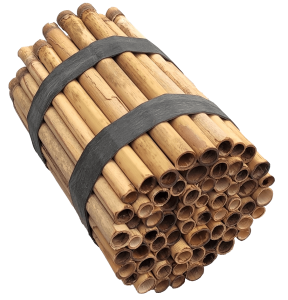 © Cornuta
© Cornuta
“I will soon start placing dwellings for solitary bees on public areas such as parks and school gardens,” Josip Popcevic told Jutarnji List in a recent interview. “I want to dedicate myself even more to educating citizens to become aware of the importance of bees for our planet. There is still a lot of room for improvement and I think that this activity will be even more popular in the years to come.”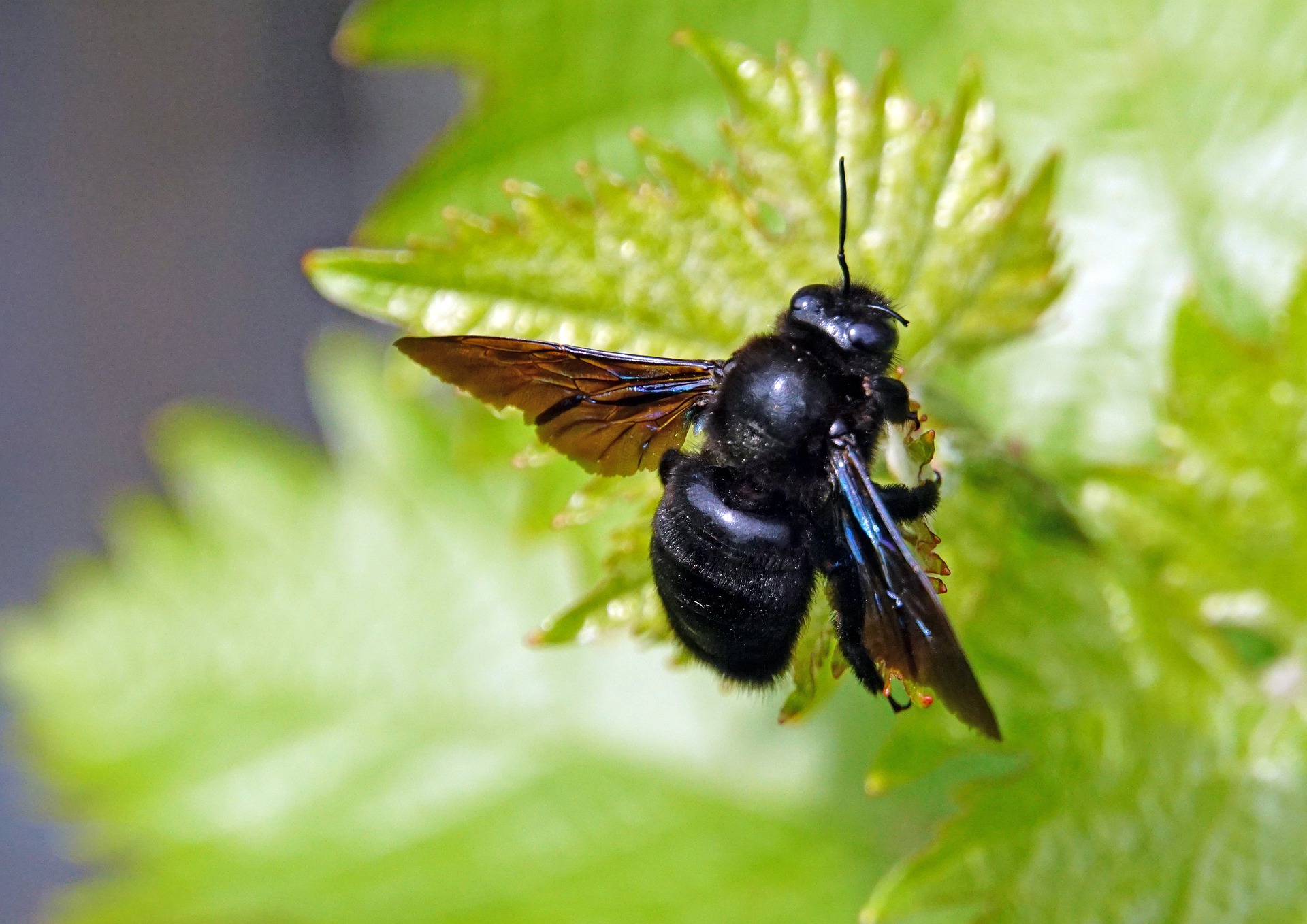 A solitary bee, one of the most important pollinators in the world
A solitary bee, one of the most important pollinators in the world


